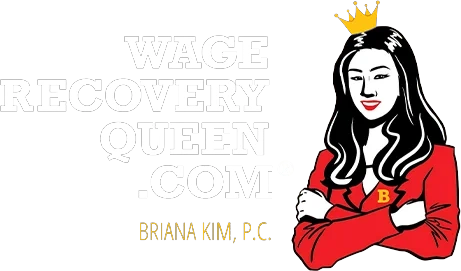Long Beach Employee Misclassification Lawyer

- Passionate
- Perseverant
- Reputable
- Resilient
Long Beach Employee Misclassification Attorney
Whether a worker is an “employee” or an “independent contractor” makes a big difference. Independent contractors are not entitled to many benefits that must be offered to employees, such as overtime pay, health and pension benefits, social security credits, protection against discrimination, and unemployment insurance. Some employers wrongly classify their workers as “independent contractors” to avoid providing those benefits. It is in your best interest to know whether you are properly classified as an employee or independent contractor.
Courts use different tests for workers for deciding different issues, but there are some common principles. In wage and hour cases, they focus on the following factors:
- The degree of control the employer exercises over the day-to-day work performed;
- The amount of the worker’s investment in facilities and work equipment;
- The worker’s opportunities for profit and loss;
- The degree to which the worker’s independent initiative, judgment and planning is necessary for the success of the worker’s operation;
- The permanency of the relationship between the employer and the worker;
- The extent to which the services are a part of the employer’s business;
- How dependent the worker is on the employer for continued work.
The courts will look to all the facts of a particular case and compare them to the appropriate factors. Thus, the employees should understand that an agreement that he or she is an independent contractor, though important, will not decide the case. If you believe that your employer has failed to follow the law in payment of your wages, contact our office for a free consultation with an experienced employment attorney who will evaluate your options under the law to enable you to obtain the most complete relief possible.
Non-exempt/Exempt
California Labor Law Exemptions
According to our California labor laws attorneys, the greatest area of abuse of California state overtime laws is the area of classifying California exempt employees. In simple terms, “California labor law exemptions” are employers’ legal defenses to not paying overtime. An important distinction, however, is that the employer must bear the burden of proving this exemption to prevent employees from recovering overtime pay. California wage and hour law is complex, and this holds true especially in determining which employees are California exempt employees. Under California wage and hour law, there are three major categories of California exempt employees: the California Professional Exemption, the California Administrative Exemption, and the California Executive Exemption.
Professional Exemption
The Professional Exemption or “Learned or Artistic” Exemption applies to employees who maintain a license to practice a profession (i.e. doctors, lawyers). However, registered nurses, pharmacists, and most school teachers are non-exempt under these laws. Under the professional exemption, employers are permitted to require such employees to work without being paid overtime. o Computer Professional Exemption This particular exemption is found under California Labor Code section 515.5 and has undergone changes throughout the years. In September of 2008, the California Legislature again modified the Computer Professional Exemption. This time, they allowed a fixed salary of $75,000 per year to be paid no matter how many hours are worked. As such, as long as this salary is paid, and the other requirements of the exemption are met, there is no right to overtime pay. For most computer programmers making more than $75,000 per year, this eliminates overtime.
Nevertheless, the good news is that “most” computer professionals are actually non-exempt and entitled to overtime pay under California Labor Code 515.5 because employers cannot meet the other prongs (excluding the minimum rate of pay). Regardless of the job title an employee is given or whether the employee is told he or she is exempt from overtime, the tasks performed will determine whether they are entitled to overtime pay.
In 2006, the U.S. Department of Labor in a letter indicated that employees who primarily analyze, troubleshoot and resolve complex problems with business applications, networking and hardware are entitled to computer professionals overtime pay. Also, employees who primarily install, configure, and test computer hardware are not exempt and are entitled to overtime pay. Therefore, their employers must pay these computer professionals overtime pay. Most computer professionals’ overtime pay is due unless such employees primarily spend their time working on management policies or general business operations.
Executive Exemption The Executive Exemption applies to employees who spend over half their work time managing businesses or departments of a business. The following shall occur for the exemption to apply:
- Manage the entire company or department or subdivision.
- Direct the work of at least 2 subordinates in your department or division.
- Have the power/authority to hire or fire – either directly or indirectly.
- Exercise independent business judgment.
- Spend more than 50% of your time doing the above tasks.
- Be paid at least $640 per week (as of this writing).
Administrative Exemption The Administrative Exemption applies to employees who provide “administrative work” that relates to supporting the business itself. This work is in contrast to production work which applies to products or services that a company provides. Nevertheless, when a company’s product is actually a service, that service is deemed to be “the product.” For instance, courts have held that a County Probation Department “produces” the monitoring of convicted persons who are on probation. Since a probation officer directly works by monitoring people on probation, he/she is involved in production work and entitled to overtime.




